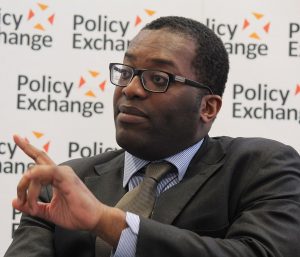Soon to be a Green Investment Bank in the UK
The global climate emergency requires new economic and ecological instruments. The Green Investment Bank (GIB) is one of them increasingly being considered in the UK.
False start
Since 2008, the Climate Change Act and the United Kingdom have been committed to reducing its CO2 emissions by 80% by 2050 compared to 1990. In 2019, Theresa May amended the Act and announced zero carbon emissions by 2050. The British government was the first major economy to make such resolutions.

Kwasi Kwarteng, the British Minister for Clean Growth.
Only between these two texts, the State sold its Green Investment Bank, created in 2013. The Australian private bank Macquarie then bought it at a low price in 2017. Environmental activists and economists have strongly criticized this decision.
That is why in July 2020 Energy Minister Kwasi Kwarteng announced a government plan towards a “Green Investment Bank 2.0”. This kind of tool seems to be indispensable to achieve the ambitious goals set the year before.
What is a green investment bank?
According to the OECD, it is “a publicly owned entity established to facilitate and attract private investment in green domestic infrastructure and other environmental sectors, such as water and waste management.” More simply, it is a bank mandated by the state to redirect investors to sustainable projects.
These original banks guarantee expertise and reduce the costs of large infrastructure projects, such as transportation, energy, or housing. These are the sectors that need ecological renovation in the United Kingdom, according to environmental associations.
An institution to the future
The Green Investment Bank represents a lever that several governments around the world have adopted. California, Hawaii, Australia, Japan, Malaysia, and soon the United Kingdom have chosen this method of financing.
This bank is not sufficient in itself but acts as a complement to a well-defined environmental policy. Implementing it makes up for the lack of information on green investment and the lack of expertise. After the economic and then health crises, restoring confidence in the future thanks to competent institutions is a duty of States. It seems that they are ready to take up the challenge.
Sources: The Guardian, OCDE, gov.uk
Cover photo: Rachel Smart/Pixabay
Encourage us if you like positive stories!





